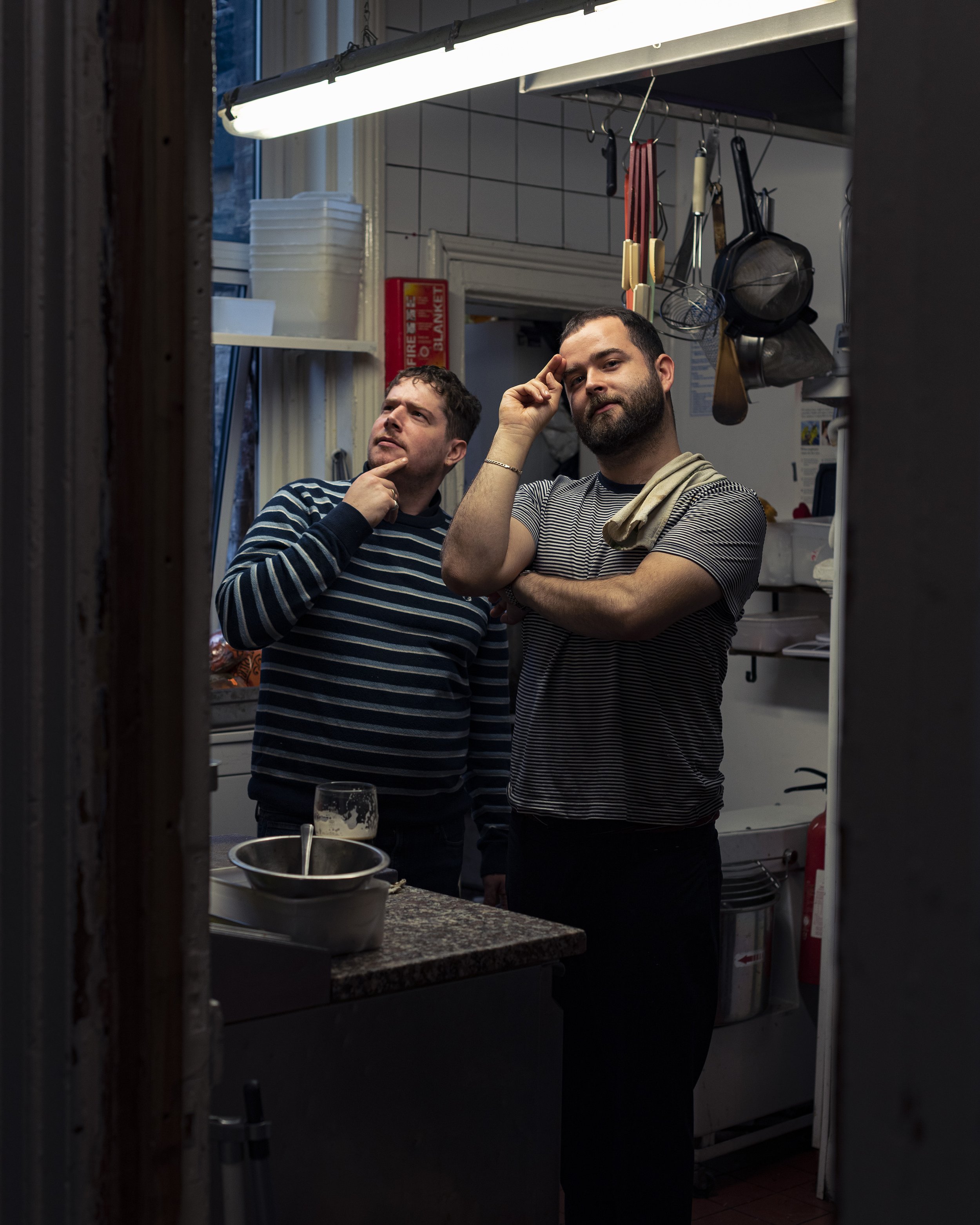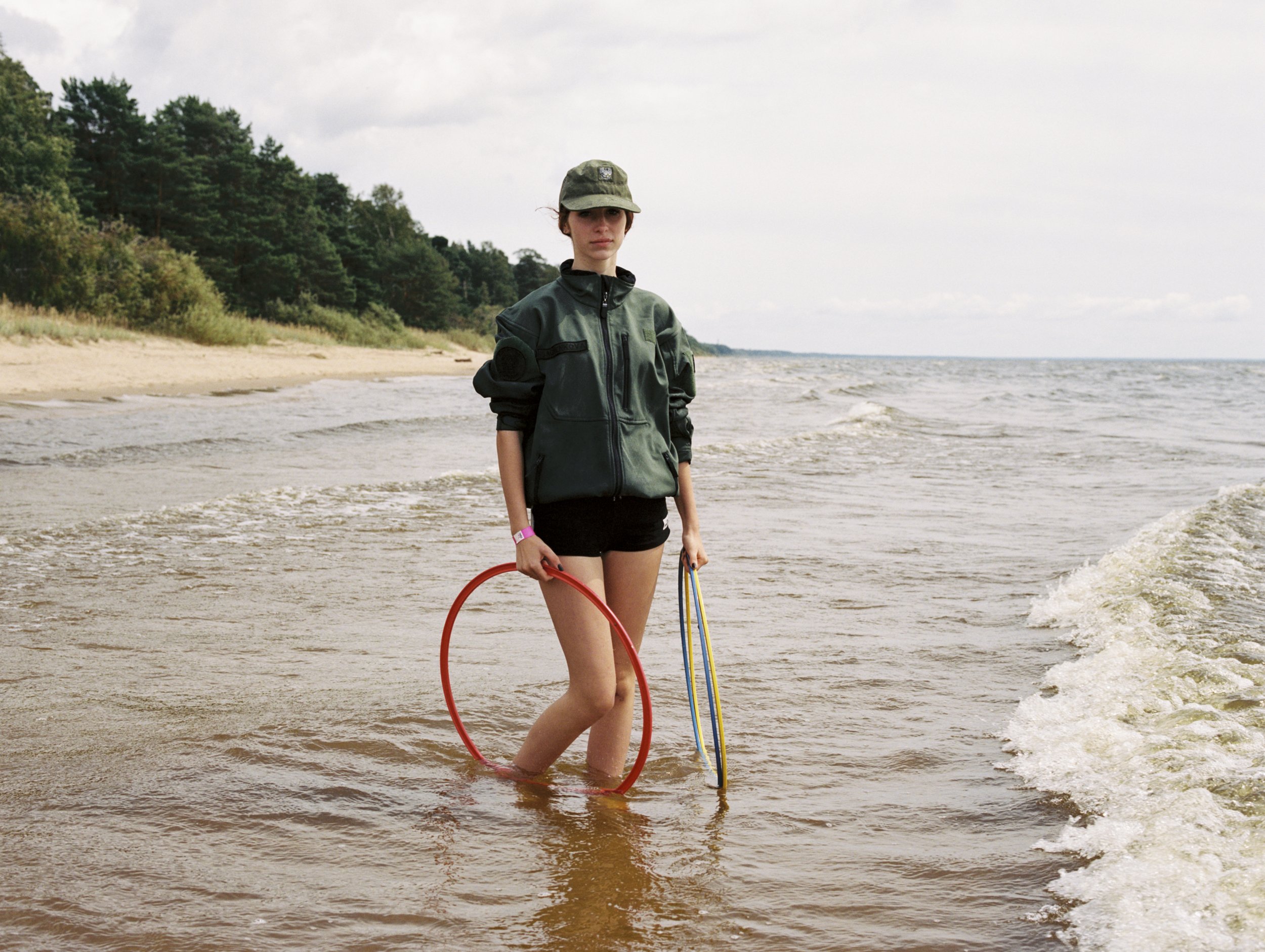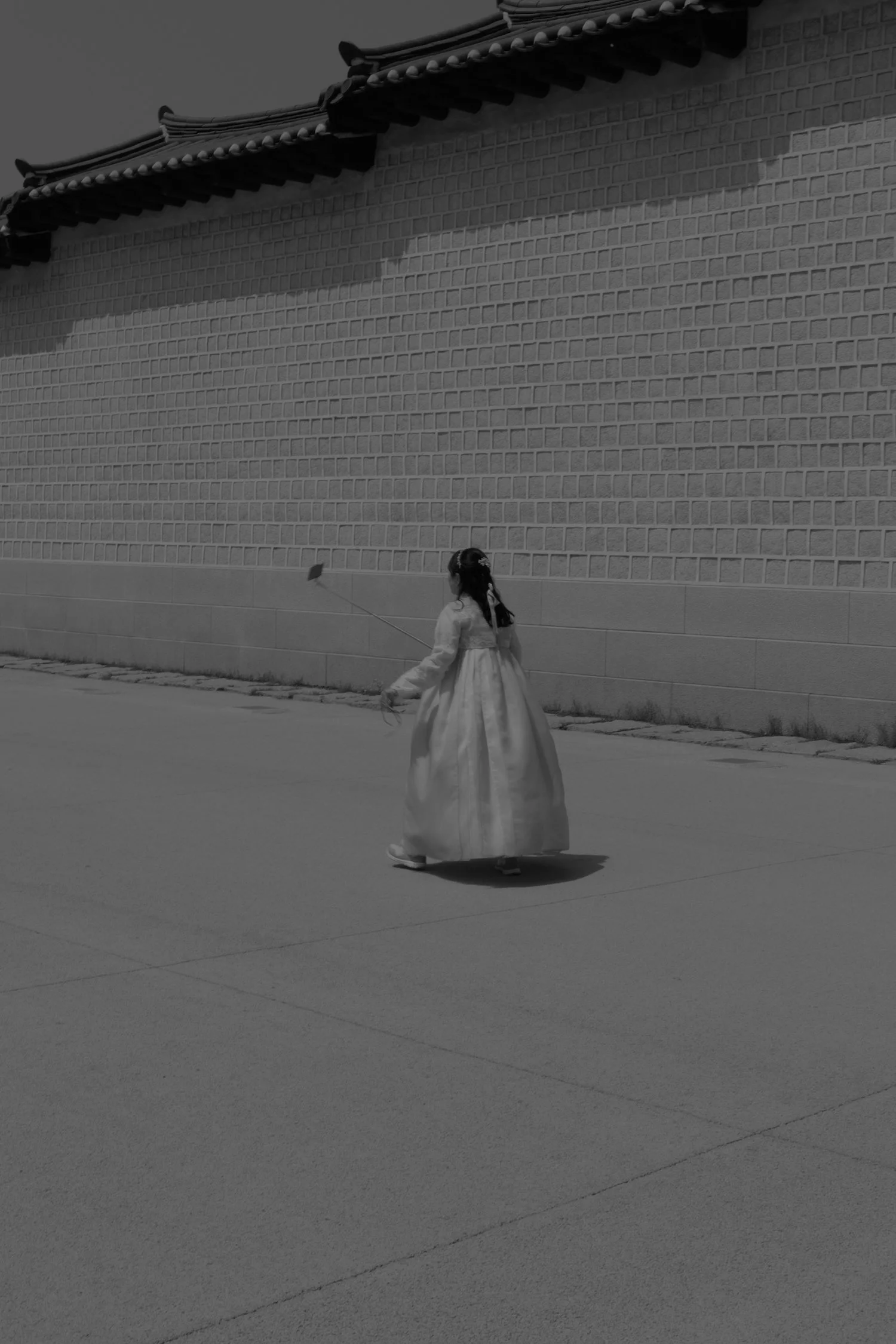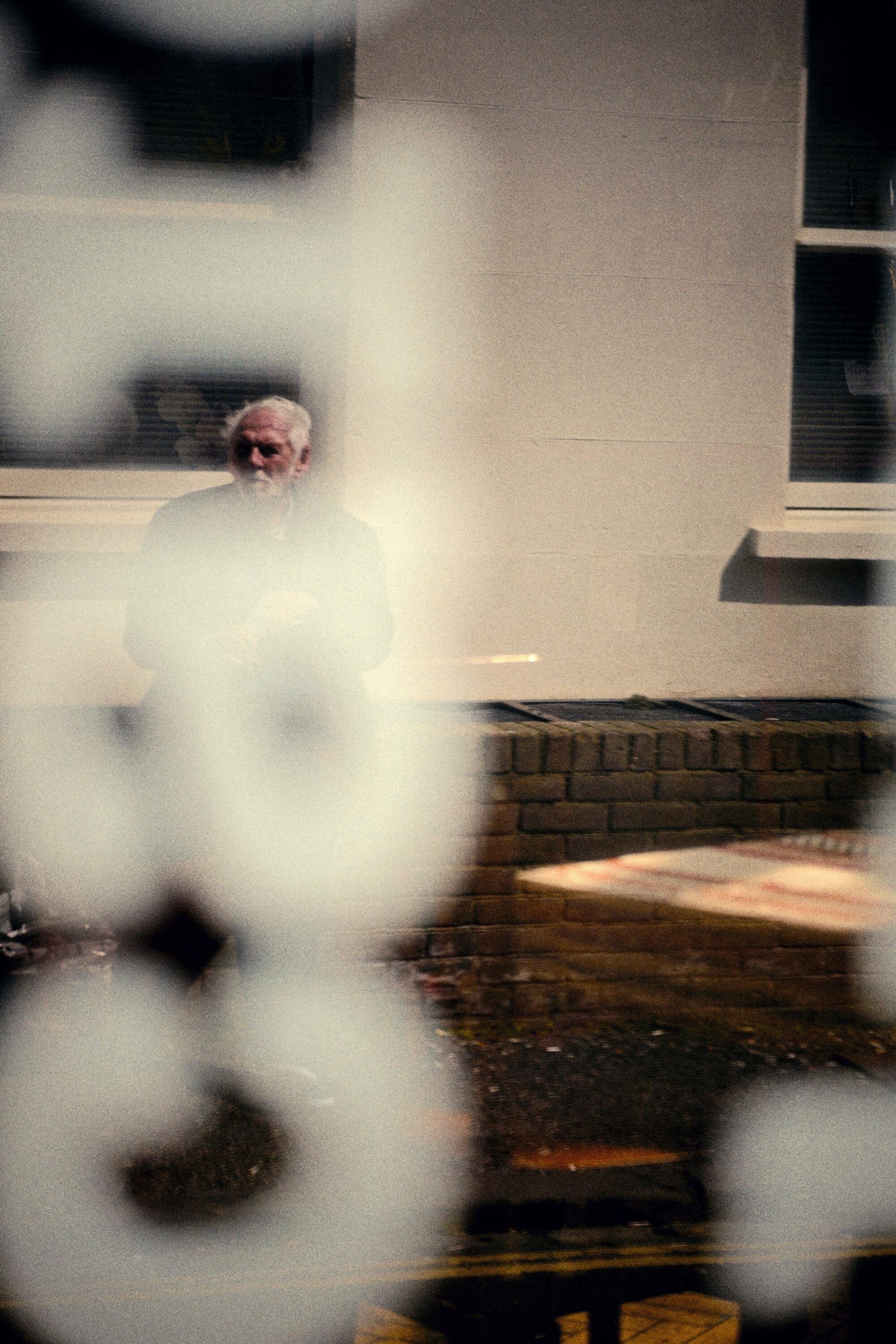HOT4U is delicious and fun
Matthew Scott started HOT4U during the pandemic, bringing Londoners a first-of-its-kind restaurant meal delivery experience. Since then, the nomadic chef has held a number of residencies across the city, currently residing at The Haggerston. We chatted with the chef about his unwavering commitment to sustainability, the sense of fun that’s essential to his cooking, and getting the keys to his first permanent restaurant PAPI, where staff wellness and a good time go hand in hand.
Interview Zhenya Tsenzharyk Photography Christian Trippe How did you get into cooking? Did you always want to be a chef?
I started working in a restaurant when I was 16 washing pots. It was a real eye opener. When I was older, I went to the best restaurant in the town where I lived with no kitchen experience. The head chef later told me that he and the other chefs went into the office and flipped a coin to decide between me and the other candidates. That was my destiny. I remember walking into the kitchen, and everything felt gargantuan and monstrous and difficult.
It electrocuted me with a sense of discipline that had been lacking in my life. I remember I didn't know how to chop an onion properly. I watched the chef do it, slicing across the onion with a knife and then dicing. Everything was very systematic. I went home to my mum's house after my first trial shift and I got a chopping board out, a knife, and an onion. I started practising non-stop and thought that this is it, this is this is my life now.
Did you ever have a lightbulb moment when it comes to food?
When I was camping with my mum in Wales, we went out at night and just stuck a rod in the estuary to see what would happen. I pulled the line out of the water and there was a horror film-like eel wrapped around the line. We took it back to the caravan and filleted it. We had it with a little bit of lemon that a stranger down the beach gave us earlier that day.
That meal tasted like the earth and the sea. It resonated with the way that I've always been brought up, which was on no money, by a single mum. It’s this idea of shoestring cooking, growing vegetables, and treating the earth with respect.
“We started with 13 or 14 orders for the first week and then suddenly, in week three, we were in GQ magazine. I didn't really know what was going on. It felt quite exciting.”
HOT4U started as a lockdown project and evolved into multiple residencies across London. Did you have a vision for it when you first started?
It began as a means to relieve a creative itch during the pandemic. It was the first concept of its kind – bringing restaurant-quality food to people so they could recreate the experience at home. We started with 13 or 14 orders for the first week and then suddenly, in week three, we were in GQ magazine. I didn't really know what was going on. It felt quite exciting. It gave people an opportunity to have a bit of fun. It broke down the wall a little bit, opening up the secrets of the kitchen for customers. We delivered things like bone marrow whiskey luges. It was a bone marrow you'd warm up, then you got a vacuum bag of whiskey to pour down the bone. It allowed people to have some fun in their living room while the world was burning outside. It was quite a nice, romantic thing.
Your food has a sustainable and seasonal focus, without ever coming across as preachy. Why is sustainability so important to you?
The core part of HOT4U is sustainability. The approach is sensitive and regenerative and involves suppliers that we know and work with. It's our way of spreading a really positive message more naturally, without people turning away from it. I was very heavily inspired by a man called Douglas McMaster who owns Silo; he's a zero-waste wizard. I think it's ignorant to waste anything, to not want to use everything. I think it's too ingrained into us the acceptable level of food waste that comes from just making food in general.
“I think it's ignorant to waste anything, to not want to use everything.”
Matt on sustainability
How would you describe your cooking style? What kind of cuisines and techniques are you influenced by?
I adore classic French food. I love Japanese cuisine and I love Taiwanese cuisine. I was head chef at Bao for four years and that opened my eyes to some really cool ingredients and really interesting ways of doing things. I love English food because of my roots, and I love English produce because of the way that I source materials.
Do you have a dish or an ingredient that you consider your signature?
There's a dish called a pumpkin and its seeds. It's one I developed at Cub. I’ve done it in a multitude of ways, but it's never the same way twice. The pumpkin was skinned and the skins were cooked into a really rich dashi broth with cocoa husks – the byproduct of making chocolate. The actual pumpkin flesh would be simply steamed. Then we would make vinegar with Johnny Drain, who’s an amazing fermentation guy. The seeds were cleaned, washed, and toasted very slowly. A puree was made from all the pumpkin innards and miso made with pumpkin too. So, it was about eight different techniques applied to just one pumpkin. Very delicious and very elegant. I’ve done versions of it at The Haggerston too.
Oysters feature regularly on your menus. What’s special to you about them?
I love oysters. They're actually vegan. There's something tongue-in-cheek about always having an oyster on the menu. When someone asks, what are your vegan options, you can say oysters. They're also incredibly sustainable; they do a lot of good – they’re natural water filters. They're easy to farm too. You don't actually have to put anything on an oyster; open it, eat it and it's delicious. I think everyone should eat oysters all the time. I would always order oysters and I would always put oysters on the menu. I always follow three principles: a cold oyster – usually with alcohol involved; a hot oyster – grilled or barbecued; then something that’s crunchy or foamy, an alternative texture to the oyster.
“You don't actually have to put anything on an oyster; open it, eat it and it's delicious. I think everyone should eat oysters all the time.”
What’s your process when it comes to creating the HOT4U menus?
Putting a menu together feels like writing a song and it's one of the best bits of the job. It’s easy when you're feeling inspired. To create things, you have to feel quite happy. The only time that writing a menu is more challenging - because it's not about the food, I know what nice things taste like – is when mental health isn’t where it should be. Fortunately, HOT4U makes me feel very happy. There's also a restlessness as well. I know that people want to come back and have the same thing again, but I'd rather them try something else.
Your attitude on Instagram, where you have 12k followers, is playful, fun, a touch risqué. What importance does social media play for you and what’s your approach to it?
It’s one of the vital pillars of a successful food business now. But sometimes it makes me feel a bit sad because it’s almost not about the product anymore, just the image. The HOT4U Instagram is in a weird way my personal Instagram. Sometimes I try to write things properly, then sometimes it might be some really weird stories at three in the morning, from whatever bar I’m in. Sometimes I let other people log in and have fun with it. It’s nice how quick and direct communicating, hitting it off and making friends with other people is now.
What's next for you?
Me and Charlie Carr (Wingnut Wines) just got the keys to our restaurant two days ago. We're opening a place called PAPI, hopefully in mid-January. It’s going to have a similar feeling to HOT4U. The idea is that HOT4U has worked hard over the last two years to get to where it’s at now and it’s grown up a little bit. We want eating to still be fun, we don't want it to be stiff. We want people to drink banging wine and eat banging food. They can make friends with people next to them. And they can make friends with us, and they can come back anytime. We want it to be like an institution.
It’s also the first time that we've started from the beginning. It’s allowing us to create our own blueprint, design things like a seasonal fermentation programme. We want to build something that’s sustainable, not just when it comes to food and drink but in terms of the working environment too. Staff culture is really important. If someone’s going to give you so much of their time, then you should make sure they’re rewarded for that.
Thanks for your time, Matthew – we can’t wait to visit you again once PAPI is up and running.
Follow HOT4U on Instagram to keep up to date with all their news and where to find their food next.








































